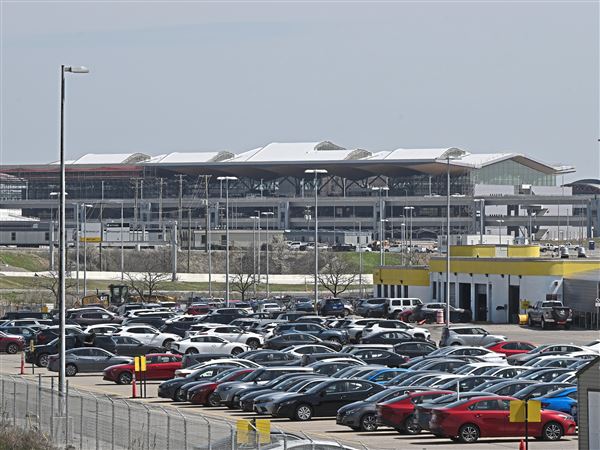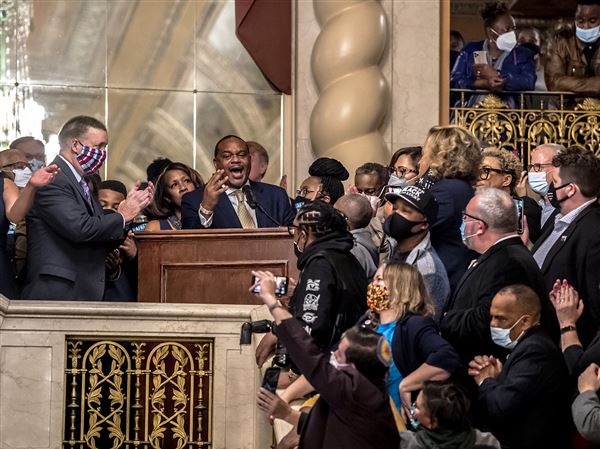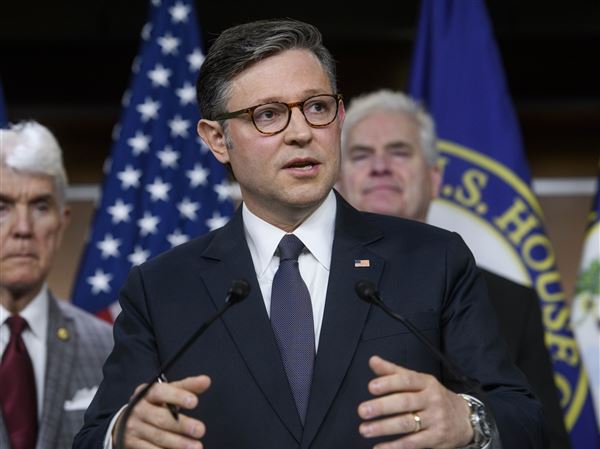WASHINGTON -- Iran's assertion that it has the right to enrich uranium for peaceful purposes is expected to be a key focus of high-level international negotiations on Iran's nuclear program that resume this week.
Iran's claim was the primary reason the talks adjourned without an interim agreement Nov. 10, with the United States spurning wording that would grant an automatic right to enrichment, the process by which uranium is turned into fuel for power-generating reactors and nuclear warheads, according to experts familiar with the issue.
Yet U.S. officials also know the negotiations will collapse if they demand a complete halt to Iran's program, which they fear is intended to produce a weapons-building capability and which Iran insists is for peaceful purposes only.
A major question, then, as talks restart Wednesday in Geneva, is whether the United States, Russia, China, Britain, France and Germany -- known as the P5-plus-1 -- and Iran can agree on language loose enough to accommodate all views on the issue but strict enough to hold Tehran to firm enrichment limits.
Settling Iran's claim to the right to enrich uranium for peaceful uses is crucial to the final outcome of what many officials and experts see as the best chance in a decade to settle the feud in which the United States and Israel have threatened military action to prevent Tehran from building nuclear arms.
"Good progress made in recent negotiations, but they have to note, resorting to excesses could complicate our journey to a win-win outcome," Iranian President Hassan Rouhani wrote on his official Twitter account Monday.
Enrichment can produce varying uranium purity levels, depending on how long the process runs. Low purity levels can be used for power reactors and medical uses, while nuclear arms require uranium highly enriched to 90 percent purity.
Iran insists it is interested only in peaceful programs, but there are a number of reasons the United States and other nations remain suspicious. Its stockpile of enriched uranium includes about 440 pounds of uranium enriched to about 20 percent purity, far more than necessary for the research reactors that would use that fuel. Additionally, Iran started it with technology bought from an international smuggling ring led by the father of Pakistan's nuclear weapons, and the U.N. International Atomic Energy Agency says it has evidence Iran secretly researched a missile-borne nuclear warhead until late 2003.
U.S. and European officials worry that Iran is putting in place the capability to quickly produce a bomb, should it ever decide to do so. U.S. and European officials have said a preliminary deal to prevent such a scenario was within reach when the talks collapsed last month.
For now, Mr. Rouhani is backed in the negotiations by Iran's supreme leader, Ayatollah Ali Khamenei. But Mr. Rouhani could suffer a crippling backlash if his government relinquished its claim that it has the right to enrich uranium. It has spent billions developing an enrichment capability, and thousands of scientists are employed in the program.
First Published: November 19, 2013, 4:26 a.m.















